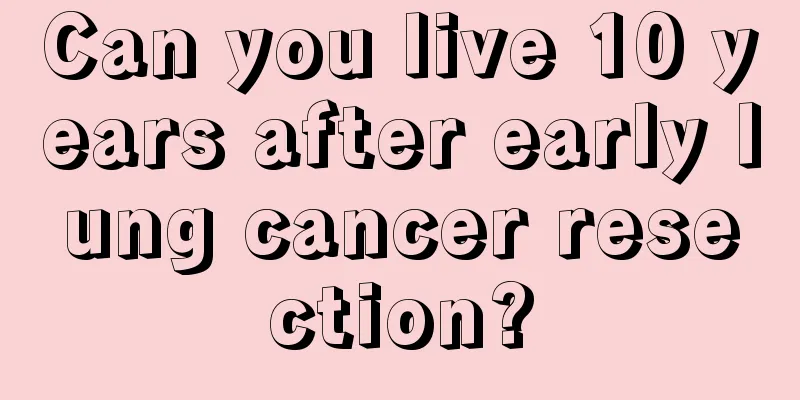Why do I feel dizzy when I turn over

|
Many friends feel dizzy when turning over, and they also worry whether there is something wrong with their body. There are many reasons for dizziness. If dizziness persists, the patient should seek medical attention in time, because it is difficult to determine the cause of dizziness by oneself. At the same time, you should also avoid taking medication to treat it by yourself. What is dizziness? There are two similar concepts about dizziness, one is lightheadedness and the other is vertigo. The two sound similar, but in fact their manifestations and causes are very different. Vertigo is an illusion or hallucination in which the spatial position of oneself and surrounding objects changes, including a sense of spinning, bumping, swinging, floating or drifting, which may be accompanied by obvious nausea and vomiting, fear of opening the eyes, panic and sweating. Vertigo is often a symptom caused by peripheral or central vestibular system lesions. Dizziness is simply a persistent feeling of lightheadedness and confusion, which may be accompanied by feelings of heaviness, stuffiness, and swelling in the head. Dizziness is often not a problem with the vestibular system. It may be caused by intracranial hypotension syndrome, anemia, hypertension, orthostatic hypotension, heart disease, arrhythmia, eye diseases, mental illness (depression, anxiety), insomnia, etc. Why do people feel dizzy? Why don't people bump into walls or trees? How do you know that you can reach out to grab an object accurately, and not reach it by stretching your hand too far or too close? When someone pushes you, your body just tilts a little and then quickly corrects itself? This is all due to the role of the triad of balance. The synergy of vision, proprioception and vestibular system allows the body to maintain balance and the orientation function to function normally, which is collectively called the "balance triad". All diseases that cause vertigo are due to damage to the balance triad, among which the vestibular system is the most important for maintaining the balance of the body's posture. It is also most closely related to vertigo. Under normal circumstances, people rarely feel the activities of the vestibular system in coordinating the body's balance. However, when the vestibular system is strongly stimulated or pathologically damaged, the stimulation of the vestibular sensation is inconsistent with the impulses from the muscles, joints, and visual receptors in spatial orientation, which will cause dizziness. The vestibular system is composed of the inner ear, vestibular nerve, vestibular nucleus and vestibular center. Vertigo caused by lesions of the inner ear or vestibular nerve is called peripheral vertigo, while vertigo caused by lesions of the vestibular nucleus or vestibular center is called central vertigo. Peripheral vertigo 1. Benign paroxysmal positional vertigo It is the most common peripheral vertigo (50%), also known as otolithiasis, which manifests as short-term vertigo when the head position changes, with an attack time of only a few seconds to 20 seconds, rarely >40 seconds; vertigo is easily fatigable and self-improving. 2. Meniere's disease Also known as Meniere's disease, it was first reported by French physician Meniere in 1861, so it was named in his memory. It is an idiopathic inner ear disease with typical symptoms of recurrent rotational vertigo, fluctuating sensorineural hearing loss, tinnitus and aural fullness. It is common between the ages of 30 and 40 and has a genetic tendency. The basic pathological change is water accumulation in the membranous labyrinth, so some people call it "inner ear water" or "inner ear glaucoma". Vertigo lasts for more than 20 minutes and generally subsides within 24 hours, but hearing will gradually deteriorate with repeated attacks. 3. Vestibular neuritis It is a common vestibular system disease, and its incidence rate is second only to benign paroxysmal positional vertigo and Meniere's disease. It is common in seasons of climate change, such as late autumn and early spring. It is common in adults but rare in children. The cause may be related to viral infection. Symptoms include sudden onset of vertigo, usually without tinnitus or hearing loss. Tends to heal on its own. |
<<: How to cure water bean quickly
>>: What is the easiest way to grow black bean sprouts?
Recommend
How long can you live with conservative treatment of mid- to late-stage rectal cancer?
How long can you live with conservative treatment...
What to do if you sweat while pulling your hair in summer
For women, long hair in summer will feel hotter, ...
The consequences of overeating and drinking
Overeating is a very bad eating habit. This eatin...
Differential diagnosis between breast cancer and 4 common diseases
In clinical practice, breast diseases such as bre...
How to store yeast powder
We may add some yeast powder when making pancakes...
Dietary conditioning for pancreatic cancer patients
Dietary adjustment is very important for patients...
Anti-hair loss shampoo
Hair loss is a very common thing nowadays, and it...
Do you know the efficacy and function of Artemisia capillaris
Artemisia capillaris is a common Chinese herbal m...
What harm can excessive thinking do
If you don't think about the future, you will...
What should I do if the scar becomes raised after skin grafting surgery?
Among modern medical technologies, various surger...
What causes gastric cancer? 4 common causes, are you one of them?
Gastric cancer is one of the common digestive tra...
What is the cause of radiation encephalopathy after radiotherapy for nasopharyngeal carcinoma
What is the cause of radiation encephalopathy aft...
Can spraying medicine relieve the nasal congestion caused by nasopharyngeal cancer?
Some people think that cancer is incurable. In fa...
What medicine to use in the early stage of stye
In the early stages of a stye, people will feel u...
Will you still grow taller if you gain weight during puberty?
Many middle-aged people have this problem, that i...









